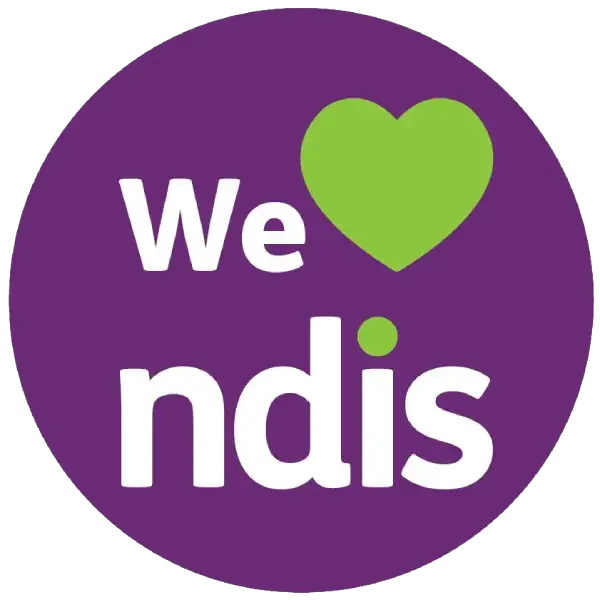Enquire about our SIL vacancies
The National Disability Insurance Scheme (NDIS) has been a transformative program for Australians living with disabilities, providing essential services and support that enable them to lead more independent lives. Among the various services offered, Short-Term Accommodation (STA) plays a significant role in supporting both participants and their caregivers. This service is invaluable for those who need temporary care, a break, or additional support for a short period.
In this detailed guide, we will explain NDIS Short-Term Accommodation in-depth, address some of the most common questions surrounding it, and help you understand how it can benefit you or your loved one.
What is NDIS Short-Term Accommodation (STA)?
Short-Term Accommodation (STA), sometimes referred to as respite care, is a type of service offered under the NDIS that provides individuals with disabilities temporary accommodation and support. It allows them to stay in a suitable facility or environment for a short duration while receiving the care they require. STA can serve a variety of purposes, such as offering respite to family carers, providing support in times of crisis, or offering an opportunity for individuals to engage in new experiences and activities in different environments. It can be used for one-off situations like recovering from illness or injury, or it can be scheduled as a regular service when respite care is needed. STA can be provided in various settings, including:- Group homes or shared accommodation
- Holiday homes or recreational facilities
- Independent living units
- Temporary care in hospitals or rehabilitation centers
Key Reasons for Using NDIS Short-Term Accommodation
The need for Short-Term Accommodation varies widely based on individual circumstances. Some common reasons why people might require STA include:- Respite for Family Carers: Carers often need breaks to manage their own health, wellbeing, or personal commitments. STA provides them with the opportunity to take a break, knowing their loved one is receiving high-quality care.
- Crisis Support: STA can help individuals who are in crisis due to a personal, emotional, or medical situation. For example, someone recovering from surgery may require temporary support that goes beyond what is available at home.
- Personal Development: STA provides opportunities for individuals with disabilities to experience new environments, develop skills, and engage in activities that they may not be able to do in their usual living arrangements. This can include attending social events, going on holidays, or participating in recreational activities.
- Transition Between Services: For individuals transitioning from one care setting to another (e.g., moving from hospital care back to home care), STA offers the necessary support during this period of change.
- Temporary Accommodation for Travel or Holidays: STA can be used to book short stays in accommodation suitable for individuals with disabilities, providing the necessary care and support for them to enjoy holidays or visits away from home.
How Does NDIS Short-Term Accommodation Work?
To access Short-Term Accommodation, participants must first have NDIS funding allocated for this service in their plan. Once the funding is in place, the process involves several steps:1. Assessment and Planning
The first step to accessing STA is determining the individual’s needs. This is usually done during the NDIS planning process, where a Support Coordinator or NDIS Planner assesses the person’s support requirements, preferences, and goals. This helps to decide the most appropriate form of STA and funding allocation.2. Choosing a Provider
Once funding is confirmed, the participant or their representative (such as a family member) can begin looking for a suitable STA provider. Providers can vary in terms of the type of accommodation they offer, the level of support available, and the location of services. Providers range from large disability service organizations to smaller, independent providers.3. Booking Accommodation and Support
Once a provider is selected, participants can book their STA stay. This includes deciding on the dates, the type of accommodation, and the specific services required. Providers will often help with coordinating any specific care needs, such as assistance with mobility, personal care, or medications.4. Receiving Care
During the STA stay, participants will receive the necessary level of care according to their individual needs. This can include a wide range of support, such as help with personal care, medication management, mobility assistance, and engaging in recreational activities.5. Returning Home
After the STA period is over, participants return to their regular living arrangements, and normal care services continue as usual. For some individuals, returning to STA may become a recurring arrangement to provide periodic breaks or support.Common Questions About NDIS Short-Term Accommodation
1. What’s the Difference Between STA and Respite Care?
While both Short-Term Accommodation (STA) and respite care provide temporary support, they have different purposes. Respite care specifically refers to giving family carers a break from their caregiving duties. While respite can include short stays in accommodation, STA covers a broader range of purposes, including temporary accommodation for a variety of needs, such as recovery, socialization, and skill-building. Essentially, respite care is a type of STA that focuses on relieving caregivers.2. Who Can Access NDIS Short-Term Accommodation?
Anyone who has an NDIS plan with funding for STA is eligible to access the service. The NDIS planner will assess an individual’s needs to determine if STA is appropriate. Generally, individuals who require temporary care, are unable to manage their support independently, or need assistance for a short-term period qualify for STA.3. How Much Does NDIS Short-Term Accommodation Cost?
The cost of STA is typically covered by the participant’s NDIS funding. The amount of funding allocated for STA will depend on the individual’s NDIS plan. If additional services or accommodation that exceed the funding are chosen, the participant or their family may need to cover the extra cost. The exact amount can vary based on factors like the length of stay, level of support required, and accommodation type.4. Can I Use Short-Term Accommodation for a Holiday?
Yes! STA can be used for holidays or recreational trips as long as the services are included in the NDIS plan. The NDIS recognizes the importance of leisure activities and travel, and participants are encouraged to take advantage of these opportunities. Providers will assist with ensuring that all necessary support is available during the holiday.5. Can Family Members Stay with Me During STA?
Family members generally do not stay with the participant during STA. However, depending on the provider and the specific situation, family members may be able to visit or participate in certain activities. If STA is being used for respite care, the goal is to allow the primary carer a break, which often means the participant will stay independently during their time away.6. How Long Can I Stay in Short-Term Accommodation?
The length of stay can vary, but STA typically lasts anywhere from a few days to a few weeks. The length will depend on the participant’s needs and goals as well as the available funding. Some participants may need STA for one-off events, while others may use it periodically for breaks or specific support needs.Key Benefits of NDIS Short-Term Accommodation
Respite for Caregivers: Family carers often experience burnout from the constant responsibility of caregiving. STA allows them to take time for themselves, reducing stress and improving their own health and well-being. Increased Independence: STA can help individuals experience a temporary change in their environment, promoting personal development, independence, and self-confidence. It may also help them learn new life skills or engage in different activities. Socialization Opportunities: Being in a new environment with other individuals can help participants improve their social skills, make new friends, and engage in community activities, reducing isolation. Customised Care: STA providers tailor their care services based on the individual’s needs. Whether it’s personal care, mobility support, or assistance with daily activities, participants receive personalised attention. Flexibility and Variety: With many different providers and accommodation options available, STA offers flexibility. Participants can choose where they stay, the level of care they need, and the type of activities they would like to engage in. Increased Access to Recreation and Holidays: STA supports the idea of living a fulfilling life, encouraging individuals to explore new places, take holidays, or engage in fun, therapeutic activities that they might otherwise miss out on.Conclusion
NDIS Short-Term Accommodation is an essential service that helps individuals with disabilities gain the support they need for a variety of reasons. Whether it’s offering a break for caregivers, providing temporary care during a recovery period, or allowing individuals to explore new environments, STA plays a vital role in promoting independence, well-being, and socialization. At Ambition Health Group, we are committed to providing high-quality, personalised Short-Term Accommodation services tailored to your needs. If you or someone you care for could benefit from STA, be sure to consult with your NDIS planner or support coordinator to discuss your specific needs and explore the best options available. With the right planning and support, Short-Term Accommodation can provide a valuable and enriching experience for all involved. Let us help you achieve a fulfilling, independent lifestyle with the support you deserve.Recent Posts
Top Rated Services
Get A Quick Quote Now
Enquire about our SDA vacancies
Enquiry Now
Consult Our Care Experts
Grab Your Free Consultation Today!
Or give us a call to speak to someone now
1300 668 655









